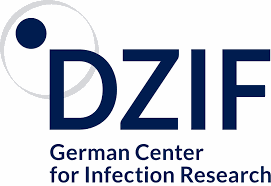Main Content
Animal experimental studies in the BSL-4 high containment laboratory
(BSL-3/-4 Animal Facility)
New vaccines or drugs are first intensively studied and characterised in cell cultures. In the next step, these new substances are tested in a living organism for their protective effect. Now, there is no other way to recreate the complexity of the human immune system accurately. Vaccines against highly pathogenic viruses, such as Ebolavirus or Marburgvirus, must therefore be tested in the BSL-4 laboratory in animal models. The BSL-3/-4 Animal Facility of the BSL-4 Laboratory is an infrastructure of the research area Emerging Infections of the German Center for Infection Research (DZIF). The aim of the Animal Facility is to test newly developed vaccines and drugs for their efficacy. If the vaccine or drug is effective in these so-called preclinical studies, clinical studies in humans follow to investigate safety and efficacy.
In our animal studies, only prophylactic or therapeutic measures are investigated that have previously been characterised in detail in cell culture studies and have proven to be particularly promising. All studies on animals or humans are subject to approval and are monitored by the competent authorities (Regierungspräsidium, Paul-Ehrlich-Institut, BfArM).
Our work with animals is guided by the 3R Principle of Russel and Burch (Replace, Reduce, Refine). This means that, whenever possible, animal experiments are replaced by other procedures (Replace). The Institute of Virology is itself involved in the development of replacement methods. Detailed planning of the experiments and suitable statistical methods ensure that only as many animals are used in the experiment as are absolutely necessary (Reduce). By choosing suitable termination criteria, which have been worked out with animal welfare officers and the supervising authority, the stress on the animals is minimised. In addition, specific measures are defined for the respective model that can improve the welfare of the animals during the experiment (Refine). Even under high-security conditions, the animals are kept in such a way that they can satisfy their species-specific basic needs to the same extent as would be possible under laboratory conditions of lower security levels.
Project Lead:
Alexandra Kupke
Staff members:
Marcel Benz, Michelle Gellhorn Serra, Martina Huxol, Lennart Kämper, Michael Klüver, Lars Meier, Pauline Neubecker, Cornelius Rohde, Lucie Sauerhering, Jörg Schmidt, Anke-Dorothee Werner
Funding:
